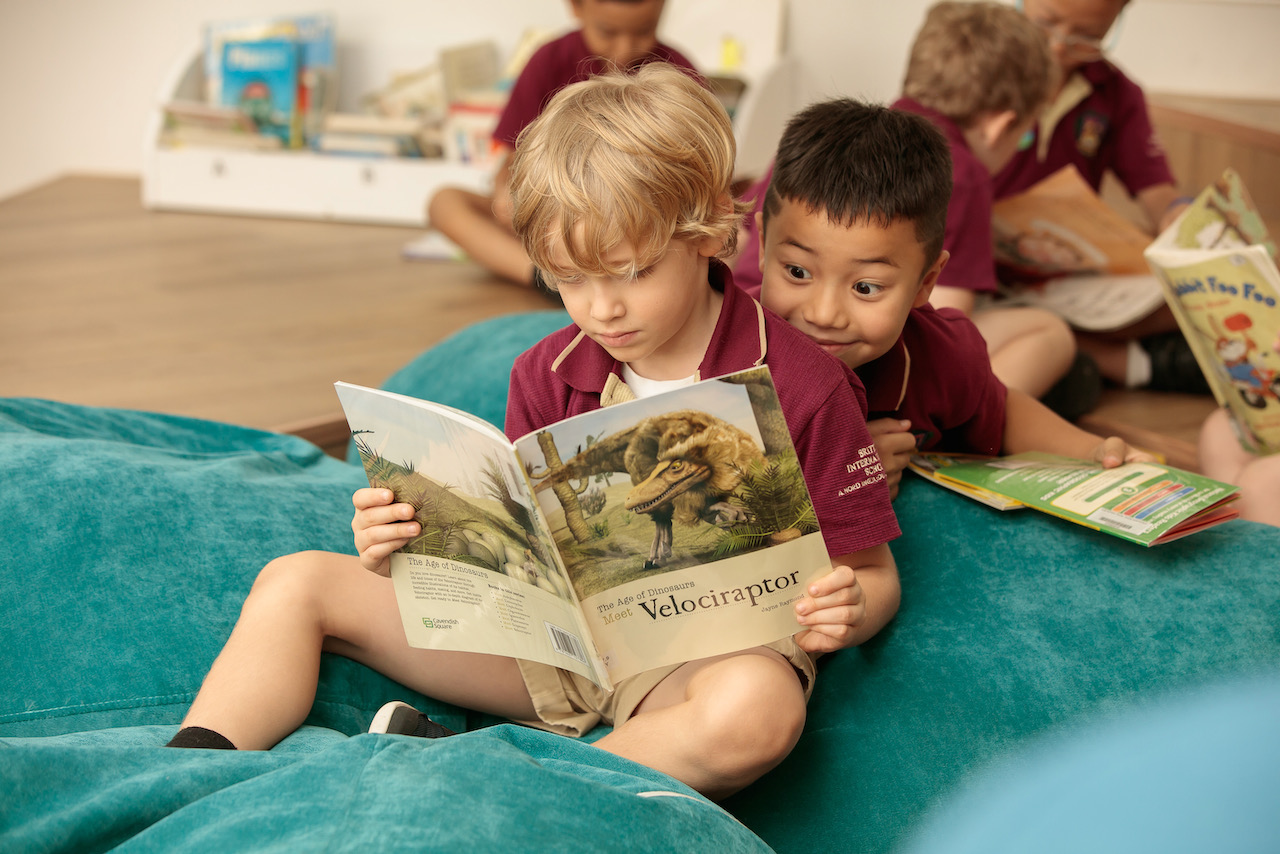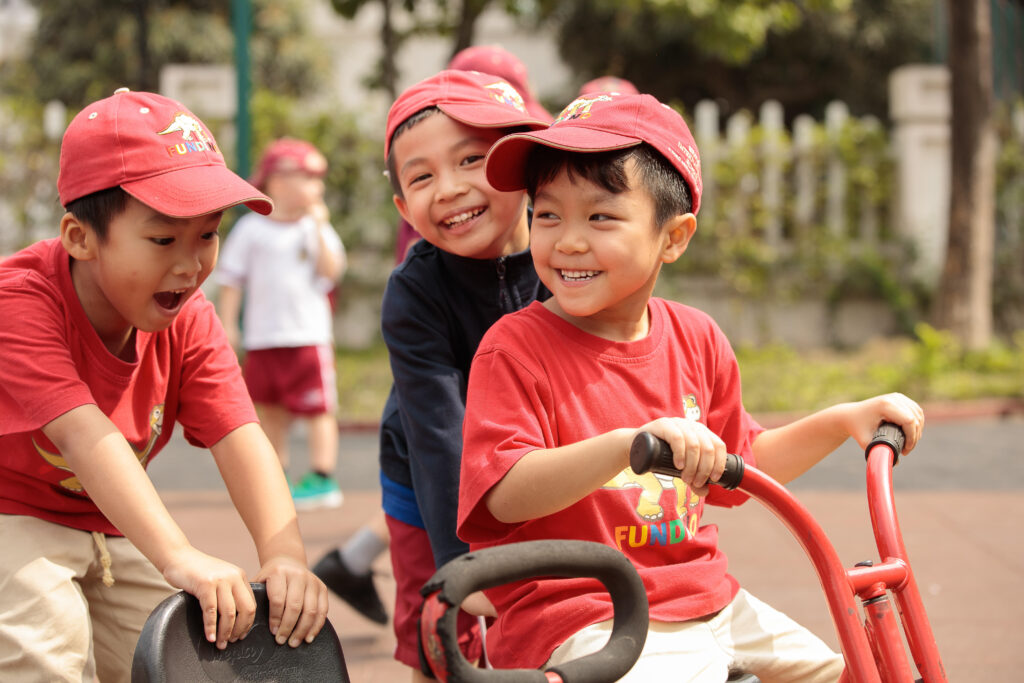The mother tongue is a key to academic success, so how can parents help their child flourish in their first language?
We know that children thrive when they’re happy – academically, socially and emotionally – and research shows that having a strong connection to the mother tongue language builds confidence, inclusion and an enthusiasm for learning.
More than that, within an inclusive environment fostering the mother tongue language in education also leads to greater engagement in the classroom and academic success, says Assistant Head of Secondary at the British International School Hanoi, Gemma Archer.
“Bi-, tri- and multilingual learners build a unique cognitive muscle that allows them to think critically at a greater depth, preparing them for global challenges in the future world of work,” she said. “And our students learn to embrace their mother tongue in our warm culture of belonging that honours each child’s unique heritage.”
At the British International School Hanoi, a Nord Anglia Education school, students also take the lead on continuing to build their mother tongue language skills, initiating student-led reading circles (combining critical thinking and reading habits) and student-led parent workshops (demonstrating how these approaches to reading helps them learn).
“In the United Kingdom, children from homes where English isn’t the main spoken language now outperform others in a monolingual family. The way multilingual students are able to think differently gives them flexibility, creativity and a cross-cultural sensitivity and competence that will help them fill trending gaps employers are seeing in the workforce,” she said.
“We can see innovation and creativity developing too, and a distinct advantage in agility within Nord Anglia Education schools around the world.”

HOW CAN I HELP NURTURE MY CHILD’S MOTHER TONGUE LANGUAGE?
There are many things you can do to support your child’s emotional wellbeing, social development and academic performance through their mother tongue language.
-> Support your child’s reading at home in their first language – both through fiction and non-fiction books.
-> Ask your child thought-provoking questions to ignite interesting conversations at the dinner table.
-> Make your multilingual child feel proud of their first language, with positive reinforcements and references to their language skills.
-> Express complex thoughts and emotions using your child’s first language, to teach them vocabulary and expressions that they may find challenging to articulate. Remember, their first language isn’t just a way to communicate, but a gateway to their cultural identity, too.
-> Develop their critical thinking skills in multiple languages to enhance their cognitive flexibility.
In March, industry leading academic experts around the world from premium international schools group Nord Anglia Education will join their peers in Hanoi, Vietnam, to explore innovative approaches in teaching and learning, to ensure children are prepared to thrive in the future world of work.
Hosted by the British International School Hanoi and the British Vietnamese International School, world education leaders will meet with parents, students and the wider Hanoi community to share best practice, exciting research, and innovative ideas in education.
You may also like
-
MRT Vietnam,FUJIFILM VIETNAM và VJM ký kết Bản ghi nhớ hợp tác (MoC) nâng cao chất lượng y tế tại Việt Nam
-
VRIGroup ra mắt VRIAcademy, nền tảng đào tạo doanh nghiệp lấy cảm hứng từ chuẩn mực làm việc Nhật Bản
-
Payoneer và sự thay đổi trong thanh toán xuyên biên giới cho các doanh nghiệp SMB tại Việt Nam
-
Nhóm MRT bổ sung tính năng mới cho nền tảng nhân lực y tế tại Việt Nam Mở rộng dịch vụ với định hướng chia sẻ vượt qua biên giới
-
Nhóm MRT bổ sung tính năng mới cho nền tảng nhân lực y tế tại Việt Nam Mở rộng dịch vụ với định hướng chia sẻ vượt qua biên giới
 Dukung Pemerintah Kabupaten Jadikan Kota Industri dan Perdagangan, BRI Finance Lebarkan Sayap di Kudus
Dukung Pemerintah Kabupaten Jadikan Kota Industri dan Perdagangan, BRI Finance Lebarkan Sayap di Kudus  KAI Daop 2 Bandung Pastikan Keselamatan Perjalanan dan Pelayanan Penumpang Terjamin dengan Baik
KAI Daop 2 Bandung Pastikan Keselamatan Perjalanan dan Pelayanan Penumpang Terjamin dengan Baik  KAI Daop 1 Jakarta Jalin Kerja Sama dengan Kejati Daerah Khusus Jakarta untuk Penanganan Permasalahan Hukum Aset
KAI Daop 1 Jakarta Jalin Kerja Sama dengan Kejati Daerah Khusus Jakarta untuk Penanganan Permasalahan Hukum Aset 